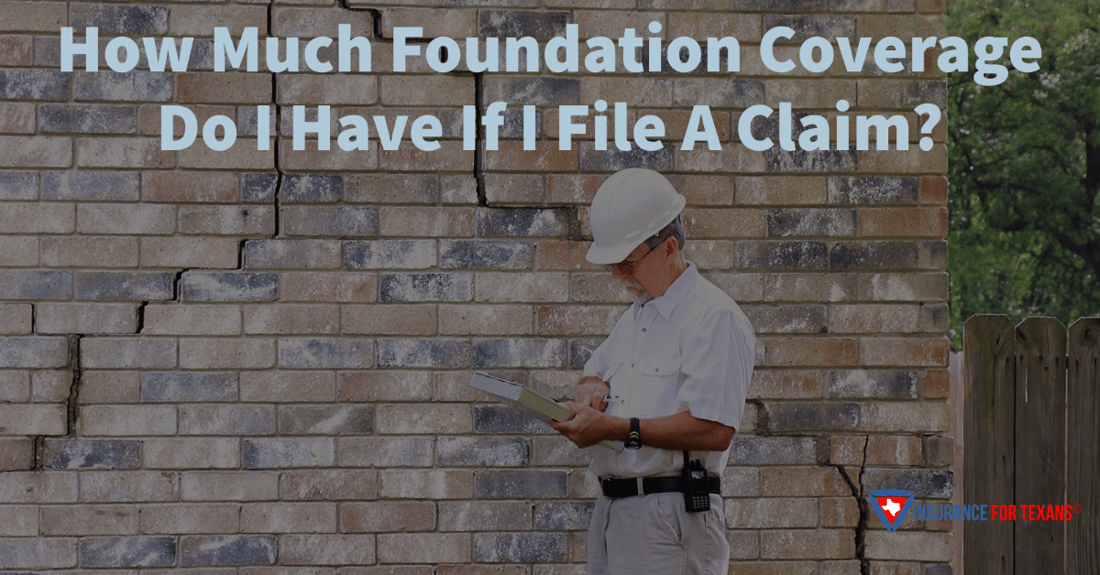It doesn't matter what part of Texas you live in, there are a few things that you can count on. It's going to be the doorstep of hell in the summer. There will be some freak snowstorm that grinds the world to a halt in either January or February. Thunderstorms produce hail the size of cantaloupe and enough rain to drown a jackrabbit. And spring and fall last approximately ten days each and you never really know when they are going to hit. I don't care if you live in Amarillo, Austin, Tyler, Fort Worth, or Abilene, you know what I'm talking about. And you also know that this creates problems for Texans beyond just not ever completely knowing how to dress!
If you've been a homeowner in the great state of Texas for any amount of time, you've seen people having to dig under their homes like spelunkers so that they can drop piers under the foundation to make sure that their house doesn't fold up like a taco in some cases.

What Do Foundation Issues Look Like?
Texas houses with foundation issues may not necessarily be easily visible from the outside, but there are some tale tell signs that let you know that foundation damage is likely a problem. These clues are especially helpful if you're looking at buying a house.
Five Signs Of Foundation Damage
- Uneven Floors
- Doors or Windows that "Stick"
- Cracks in the drywall
- Separation between bricks on the exterior of the home
- Foundation Cracks in the concrete slab
Some of those you may not be able to see very well. That's why it's important to have a home inspector do some due diligence for you before you escape the option period on a home purchase. But what can you do if you already own a home with these symptoms? Will the insurance company allow you to file a claim against your homeowners policy? Is this something that is covered by a separate policy like a home warranty? Is foundation repair insurance even a thing? Is all of this an out of pocket cost? Let's take a look at the reality here in Texas.
Does My Texas Homeowners Policy Cover Foundation Repair?
In Texas, foundation coverage is a very tricky claims process. The problem lies in what the cause of the damage to your foundation is and how long it's been there. Foundation coverage on a standard home insurance policy is broken down primarily in how the damage has occurred. If you have a pipe burst in the foundation and have to get to the pipe, you will most likely have coverage since its damage from plumbing. However, there is a big caveat that if it takes a long time for you to notice it MAY not be covered. That said, most homeowners insurance policies will cover the cost of repairing a foundation in the case of certain events like fire or explosions. You know. The big stuff.
However, Texans need to be aware of certain occurrences, or perils in insurance language, that though it would seem like they would be covered, usually aren't.
Shifting soil and faulty construction are not usually covered by a typical Texas homeowners insurance policy. You needing to put piers in under your foundation to level your home is generally not covered by a standard home insurance policy no matter what that foundation specialist may tell you. The good news for you is that a great insurance agent will include an optional additional coverage on your home insurance policy that will cover any repairs needed after you level the home using the piers. This is especially important as water damage from pipes that are in the foundation is prevalent after the back and forth of the concrete slab. These repair costs for plumbing leaks in your foundation can be significant, so make sure that you ask your agent about this important item.
Finally, while earthquakes and flood damage are candidates for causing significant foundation damage, they usually require their own separate insurance policy. The vast majority of standard home insurance policies sold in Texas by the insurance companies have common exclusions for earthquakes and flood damage is always on a separate policy.

How Much Foundation Coverage Do I Have If I File A Claim?
The short answer to this question is that it depends. We know that Texans LOVE that answer. But it really does since different types of damage produce different kinds of claims for foundation damage. Therefore, the amount of coverage allowed will change. If you have damage to your foundation from fire or explosion, it will be included as part of your dwelling coverage that is part of your rebuild estimate. That's a big number. However, if you're going after a plumbing leak after leveling your home the claims adjuster is likely going to apply a smaller sub-limit to your insurance claim.
How To Prevent Foundation Issues
I once had a realtor tell me that all homes in DFW either currently have foundation repairs or will some day. We would like to think it's not quite that bleak. There are things that you can do to make sure that you are not bitten by the clay soils that we have here. We see this as a two-step process.
1. Inspect
You will want to make certain when you are purchasing a home to hire a quality and qualified inspector to do a quality foundation inspection. If the inspector determines an issue, you may choose not to move forward with the purchase in lieu of costly repairs the homeowner would need to make before you move in.
However, renegotiating the price of the home that requires these repairs to be made may serve your interest.
And since soil movement is in fact a moving target, even if you move forward and purchase the home or have lived in your existing home awhile, it is wise to have the foundation inspected every so often to know the current condition.
2. Maintain
What can you do to properly maintain your soil and its potential effects on your foundation during the winter months?
It all starts and ends with keeping the moisture level as consistent as possible around your home's foundation and making certain no leaks (exterior or interior), tree roots or pipes are contributing to shifting.
Having a year-round irrigation plan for your soil is key. Keeping gutters and downspouts from pooling water helps to keep your foundation free from excess water. Taking notice of the weather and its effects on your soil and adjusting your irrigation based on the expansion and contraction helps the most.
How Can I Make Sure To Have My Insurance Cover Foundation Issues?
Since we are Texas homeowners as well as insurance agents and we know the Texas two-step of cold to warm weather. We'll be glad to talk soil with you, but we'll be more than glad to talk about what kind of coverage your home needs in case there are gaps in your insurance coverage. As a local, independent insurance agency, we offer an insurance review and match homeowners like you with great coverage at the best value. Notice we didn't say cheap home insurance. Since you pay a lot of insurance premiums, you need to make sure that you are getting great value for hard earned dollars. Click the button below to start a conversation about making sure that you have TRUE Texas Home Insurance!



